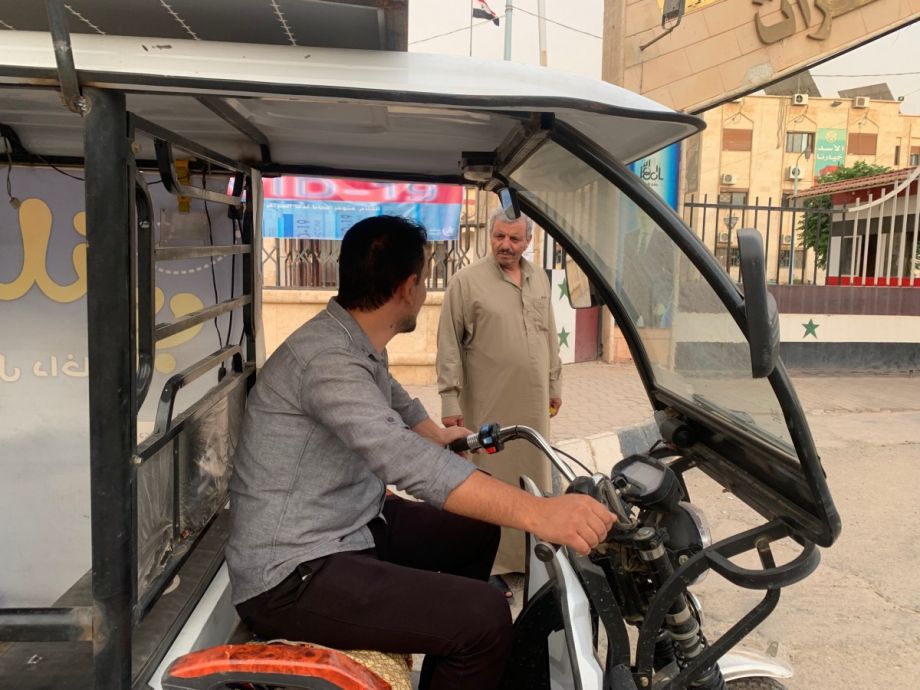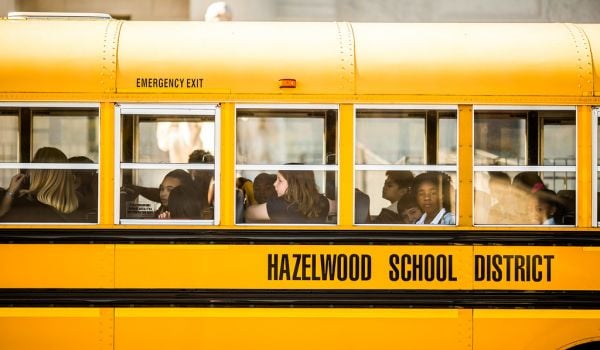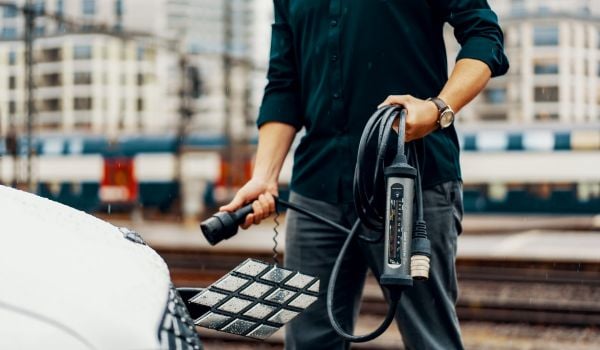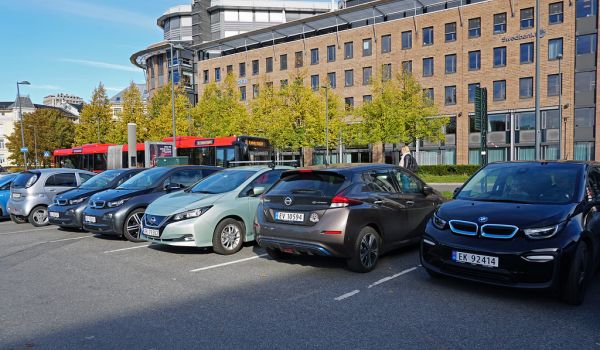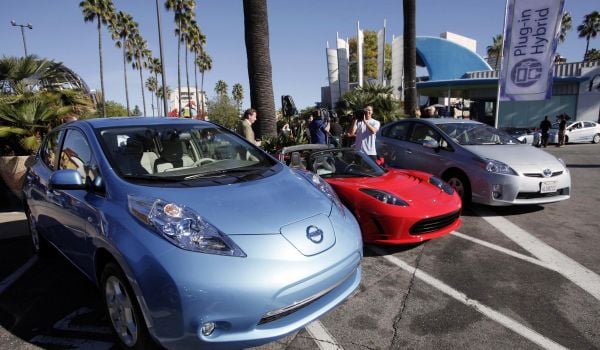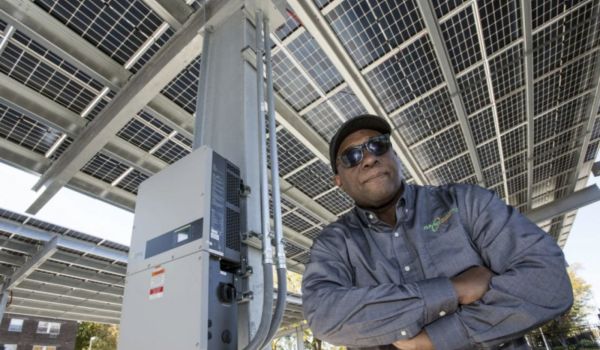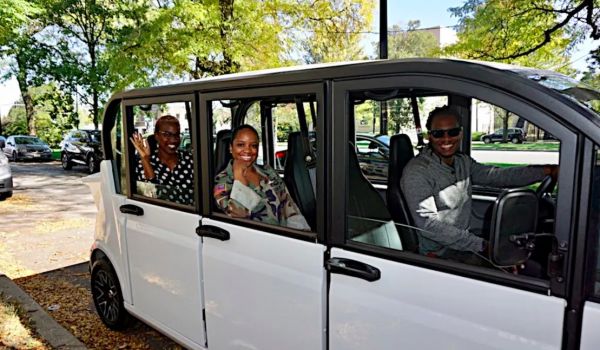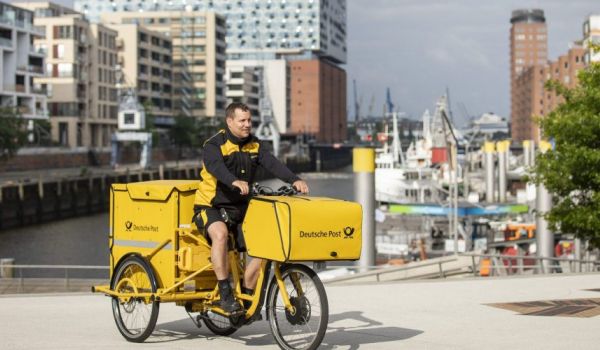One January morning, residents of Syria’s city of Deir el-Zour woke up to the alien sight of two tuk-tuks roaming their streets, unannounced.
Although they’ve long flooded cities and villages in other parts of the Middle East, these three-wheeled vehicles’ arrival to this eastern city of Syria is timely. An acute energy crisis that has forced many citizens to stop using fuel-run vehicles because of the soaring costs prompted one young engineer to create electricity-charged vehicles as an affordable alternative for her community.
“The purpose was to give residents of the city an option besides the congested buses for which they wait for hours to squeeze in – if they managed to – or cabs that have become too pricey for most people to afford,” says 26-year-old engineer Doaa Al-Ibrahim, who created these two electric-powered tuk-tuks.
Having graduated from the faculty of petrochemical engineering at the local AlFourat University in 2020, Al-Ibrahim has lived through her own share of struggle with the country’s fuel and transportation crisis. Following a course in business administration, Al-Ibrahim says the ongoing need for a cheap and safe means of transport pushed her to develop the electricity-charged battery for the vehicles.
Al-Ibrahim’s electric tuk-tuk project, called Wasalni (“Give ’Me a Ride”), was an immediate hit, especially among university students, many of whom stopped attending classes due to the exorbitant costs of cabs. Each tuk-tuk usually makes about 35 trips a day, often carrying three passengers on each.
Wasalni charges a passenger around 500 Syrian pounds (less than 48 cents) for a commute that can take a maximum of 20 minutes – the time required to get to either end of the eastern Syrian city in normal traffic. “The same journey would cost, on average, about 3500 pounds – roughly $1 – in a regular cab, or an endless wait for a slot on public transport,” she explains.
That’s a hefty price in a country where a citizen’s monthly salary doesn’t exceed $40, and over 90% of the population lives below the poverty line. With inflation rates continuing to climb, reaching a three-decade high in March, two-thirds of the population are expected to face food shortages this year.
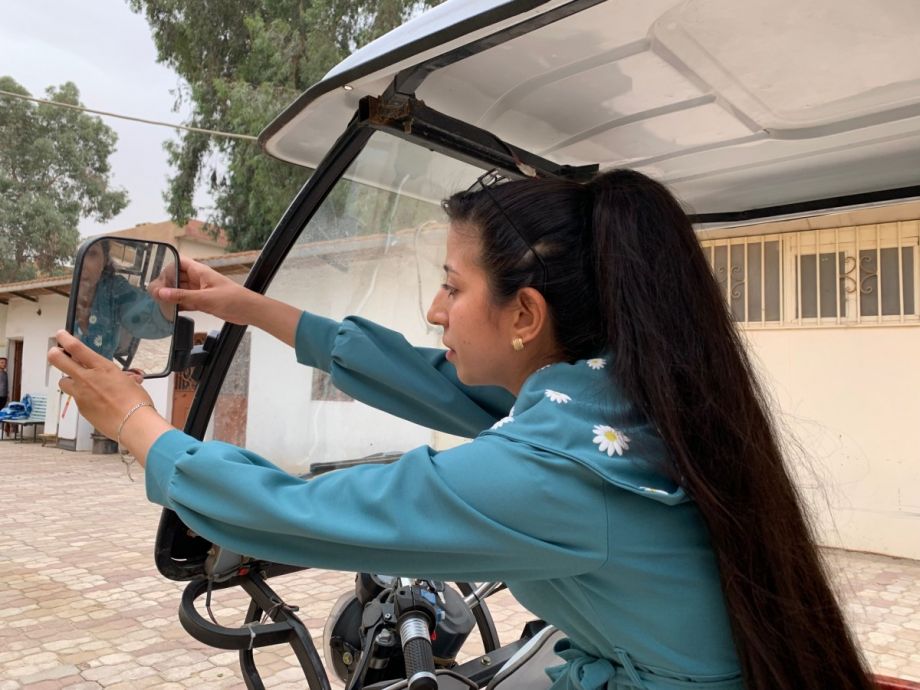
Engineer Doaa Al-Ibrahim adjusts the viewing mirrors before the tuk-tuk starts its morning trips. (Photo by Safaa Sallal)
Years of violence that destroyed the economy and stripped the government of its control over key oil fields, compounded by the U.S.-led Caesar Act sanctions, have left Damascus unable to provide sufficient fuel supplies for domestic use, driving it to lift subsidies off various energy commodities. Prices of subsidized Octane 90 soared from 450 pounds a liter in early 2021 to 1100 liras by the end of the year, while the unsubsidized version saw its price increase by more than 280 percent in that same period.
Simultaneously, the Syrian pound significantly lost value, “reaching a historic low” of 4,760 pounds to the dollar in March 2021, according to a June UN Office for the Coordination of Humanitarian Affairs report. “Although rebounding and averaging 3,500 pounds to the dollar in the last months of the year, prices of basic commodities rose sharply,” the report found.
The impact of both economic developments on Syrians has been the harshest since the conflict broke out over a decade ago. Transportation was sharply hit.
Alaa Al-Abd, one of the many university students who have become the more regular clients of Wasalni, said it has been a struggle to get around.
“I was often late to my lectures, even missed several as I waited hours for a bus that I can hop on,” she says. “Those tuk-tuks are way more comfortable, way more reliable, faster and overall safer. It has been my ride every morning and back for months.”
Ghasan AlMohammed, a nursing student who is one of the two young drivers working these vehicles, says it was curiosity that first drew people to try the tuk-tuks and see how they navigated through the narrowest alleyways and bumpiest roads.
“They were not familiar to locals, but it became immediately clear to them what a more affordable ride it is compared to cabs, and an easier, more dignified means of transport compared to overcrowded buses.”
The driver answers a phone call from a regular client just as he drops off another. “I’ll be there in a minute,” AlMohammed briefly responds before steering the compact vehicle towards the direction of his new destination, cruising along roads often lined with remnants of buildings torn down by the war. On a very calm day, he says, he completes no less than 10 drop offs, some with three passengers at a time, which mostly happen during the earlier hours of the morning as he takes passengers to their university classes or jobs.
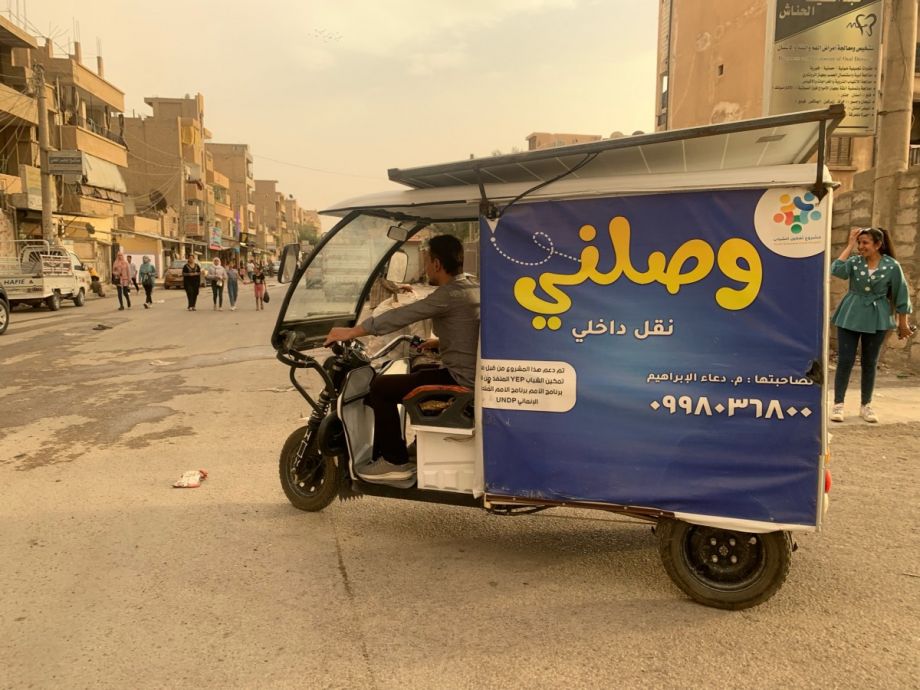
Wasalni, or Give me a Ride, was launched in January, bringing to Deir el-Zour two electric tuk-tuks. (Photo by Safaa Sallal)
Odai AlHadrawi, a civil servant, says he shares one of those tuk-tuks with a colleague every morning to get to the office on time. “They’re a real blessing and a true savior from a transportation crisis that drained us,” he says. “I can now afford getting around the city and also buy essentials for his family.”
Al-Ibrahim explained that she had the five-seater vehicles locally made to circumvent the sanctions which would have made their import both impossible, and costly. To secure the funding, she presented the idea of electricity-charged tuk-tuks to the UNDP’s Youth Empowerment Project in mid-December, and was awarded $2500 to finance the project. But in order to execute an engine that relies on electrical power rather than fuel, she added the equivalent of $1000 from her own pocket to make it happen.
“Since then, the engines have been modified to allow for it to also be partially powered by solar energy, making them not only more efficient, but also environment-friendly,” she says.
The solar panels, she noted, help overcome frequent, and hours-long power outages. War-destroyed power plants drove the state to ration power supplies as it struggles to provide a constant stream of electricity that meet local needs.
“As with much of Syria, the city gets two hours of electricity for every four hours of outage, which means that a tuk-tuk’s battery take up to 10 hours to charge – which is done during the night – to be able to function for nine hours straight during the day, driving at a speed of 40 kilometers an hour,” she explains.
Wasalni’s challenges don’t end there. Al-Ibrahim says that Deir el-Zour mechanics’ unfamiliarity with the vehicles, or with the customized engines powered by electricity and sun, means that in the case that a tuk-tuk breaks down, it needs to be taken to Damascus or Homs, a distance of 450 or 360 kilometers respectively, for it to get fixed. “This can take days or weeks,” she says.
But to users who have grown dependent on these tuk-tuks, these challenges are unnoticed. Noor Al-Atallah, a science secondary school teacher, says she’s been advising her students to give these vehicles a try whenever they come late to her lessons. “They’re my to-go-to option to get to work or run errands. They’re like a cab for the poor,” she says.
This article was published in collaboration with Egab.
Safaa Sallal is a journalist in Deir el-Zour, Syria.

